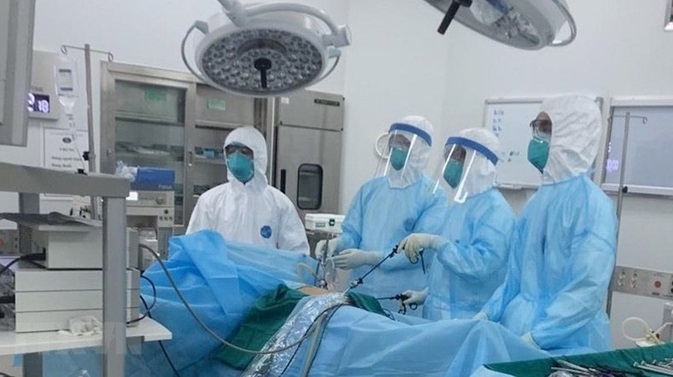
Viet Nam’s treatment for UN employee marks new milestone in bilateral ties
Latest
 |
| Doctors at National Hospital for Tropical Diseases are treating a COVID-19 patient. (Photo: VNA) |
This is a historic, significant achievement, he told that the UN would continue to hold discussions with the Vietnamese government on turning the country into an important and potential destination for patients under the UN Emergency Chartered Medical Evacuation Services (MEDIVAC) in the future.
Earlier, Viet Nam, at the request of the UN, had received and successfully treated a UN staff member who contracted the coronavirus while working in a regional country and was in critical condition.
The patient was brought to Viet Nam by a plane run by the MEDEVAC, according to an announcement from the Ministry of Foreign Affairs.
Viet Nam was once seen as a country that needs to send its severe patients to other countries via the MEDIVAC mechanism such as Singapore and Thailand, the official said.
However, this is the first time the country has admitted a patient through the mechanism, especially in the context of the pandemic spread, he continued.
According to Malhotra, one of the reasons that the UN asked Viet Nam to treat the UN staff member was the country’s good performance in COVID-19 prevention and control, with a low rate of infections, as well as its good medical services.
The event is of historical significance as it took place at a time when Viet Nam was holding the rotating UN presidency, the official said, expressing his hope that there will be similar activities in the time ahead.
Regarding cooperation between the UN and the Vietnamese government and competent agencies in the pandemic combat, Malhotra said both sides have acknowledged the important role of the other, with the Vietnamese government playing crucial leadership.
Helping Viet Nam build and roll out its vaccination programme is a top priority of the UN in 2021, he affirmed, adding that the UN and relevant agencies will continue their assistance to Viet Nam in vaccine supply, and vaccine quality and safety control.
He also suggested the country should do better in expanding vaccination coverage, and informed that the UN will make effort to provide the country with vaccines enough to inoculate 20 percent of its population by year-end.












